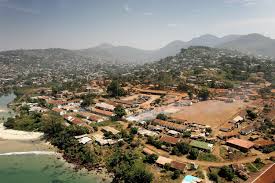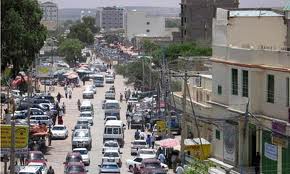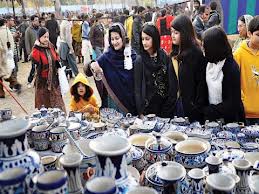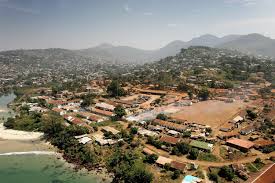All of us at One Million Bones recognize and abhor the crises that continues in Syria. The most recent numbers we have seen show 70,000 dead and 2 million displaced. And I hate to talk about "numbers" but that's how the world quantifies crises. We asked our friends at Syrian Expatriates Orgnaization to share one of their stories with us, and we are grateful for this wonderful post!
Guest Blog Post: Shlomo Bolts is a Policy Fellow at Syrian Expatriates Organization. He is also a Research Consultant for the Orthodox Jewish social justice group Uri L'Tzedek, and holds an MPhil in Modern Society and Global Transformations from Cambridge University.
In the early 1900's, my great-grandfather bid farewell to his family in Europe, and left with his brother to make the long overseas journey to the United States. Little to their knowledge, this was the last time they would see their family. In July 1941, Hitler's troops invaded my great-grandfather's home village, Vitepsk, and killed 15,000 Jews in a single week. The rest of his family was never heard from again.
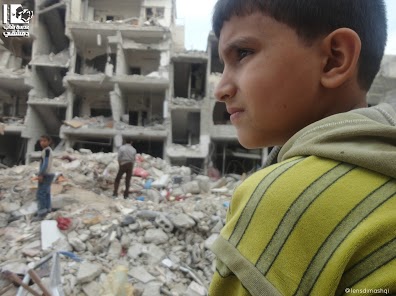
Seventy years later, I started elementary school, and began learning of the tragedy that befell my people in the Holocaust. At the yearly Holocaust commemorations, which were all-day affairs at my Orthodox Jewish school, I always went through a mixture of emotions. Sadness: So many good people were lost, so many happy communities wiped out. Why did they have to die? Disbelief: How did it happen? One day they had normal lives, the next day they were victims in a history book. Anger: Where was the world?! Where were they? They sat back and watched! I resolved that if I ever saw mass atrocities occurring, I would not just watch.
There have been numerous instances of mass atrocities since the Holocaust. In each instance, the world intervened too late, or not at all. No action was taken to stop the Cambodian Killing Fields or Rwanda's Hundred Days of Hell. Instead, millions suffered until local actors (the Vietnamese Army and the Rwandan Popular Front) finally overthrew the perpetrators by military force. During the Bosnian Genocide, the world failed to intervene as the Milosevic regime indiscriminately shelled Bosniak civilians. Only after the Srebrenica Massacre of over 8,000 Bosnian Muslims was the world finally shamed to act, launching a NATO bombing campaign until Milosevic stopped the killing.
I was personally involved in a great deal of activism surrounding the Darfur Genocide. While I am proud of my work there, and of the impressive mobilization that took place, ultimately, we failed to catalyze international action to protect civilians. The perpetrator, Omar al-Bashir, still sits in power; his hold on Darfur is most likely stronger because he used mass civilian slaughter as a military strategy.
In March 2011, residents in Deraa, Syria began protests against the torture of detained youths from the city. Police forces of the dictatorial Assad regime cracked down with tanks and gunfire, but protests only grew stronger, and soldiers defected rather than shoot their own people. Soon, pro-democracy demonstrations had engulfed all of Syria, and defected soldiers were organizing into the Free Syrian Army to defend civilians from their government. Then the regime escalated its crackdown, first with artillery bombardments, then with airstrikes, then with house-to-house killings and mass rapes. Now, at least 70,000 Syrians are dead and over 2 million have fled their homes. Holocaust survivor Elie Wiesel has called Syria a "bloody center of history," and the death toll of Syrian civilians rivals that of Bosnian civilians during the Genocide.
The Torah states, in Leviticus 19:16, "Do not spread gossip amongst your people; do not stand idle as your fellow bleeds. I am the Lord." The great Medieval scholar Rashi interprets this passage to mean that one should not watch his fellow die if he capable of saving him. A subsequent scholar, Choshen Mishpat, elaborates that in responding to the danger of another, one should not be overly zealous to preserve his own safety. Can we honestly say that, with regards to the slaughter in Syria, the world has done all that it could for the Syrian people? How much longer can we sit back and watch? How many more excuses can we make?
There are many interpretations to the situation in Syria today. Some call it a civil war. Some call it a democratic revolution. Still others call it a sectarian conflict. However, if we do not act, I believe that when our great-grandchildren open their history books to the section on Syria 2011-2013, they will read first and foremost about the mass atrocities that we allowed the Assad regime to commit during this time. And then they will ask: Where was the world?!
We do not need to be mere spectators to history, watching mass slaughter pass us by. There are concrete steps, large and small, that every person can take to raise awareness of the crisis in Syria, and they need not even be political. Syrian Expatriates Organization has sponsored a wide range of arts and culture projects inside Syria. I am working with members of the American Jewish community to develop a Syria-themed supplement to the Passover Haggadah. There is lots you can do. Every little bit helps.
The situation in Syria looks grim. In fact, the killings we see now could be the blackness that heralds the dawn, or they could signal the start of a still-darker chapter in Syrian history. To an extent, we can decide which it is, with our action or with our silence. Let us make the right choice.
 Monday, March 25, 2013 at 5:10PM
Monday, March 25, 2013 at 5:10PM 
